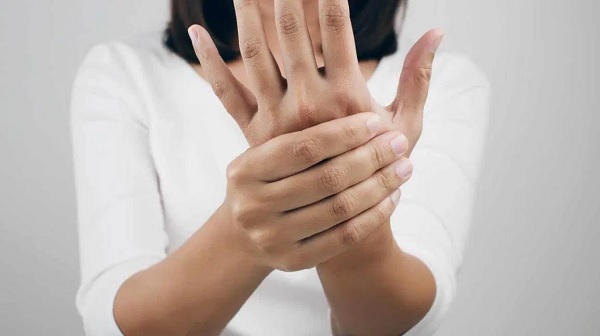The Mirror's Health , Lifestyle and Fashion

What is Guillain-Barré Syndrome?
Guillain-Barré Syndrome occurs as a result of an auto-immune response, where the immune system overreacts and attacks normal body tissue.
Advertisement
The disease was named after the people who discovered it in 1916. They were George Guillain, Jean Alexander Barré, and André Strohl.
Although the disease is commonly known as Guillian-Barré Syndrome in some instances Guillian-Barré-Strohl Syndrome may also be used.
It is a rare condition that affects the peripheral nerves (nerves that connect the brain and spinal cord to the rest of the body thereby receiving and taking information from the body to the brain).
When an individual is affected by this condition, there is significant damage/injury to the nerves and that renders the transmission of information from the brain and spinal cord to the rest of the body and back ineffective.
It typically begins in the feet and progresses upwards, towards the trunk/torso to the hands. The weakness generally affects both sides of the body, and it may get worse over several days. The condition more often than not occurs in previously healthy people and begins suddenly.

It typically begins in the feet and progresses upwards
Risk factors
The cause of Guillain-Barré Syndrome is uncertain but in most cases the condition may be precipitated by a viral or bacterial infection.
The infection causes changes in the body's immune system, which then begins to destroy the protective covering of the nerves.
The protective covering around the nerves is essential in transmission of information to and from the brain and spinal cord. Hence when the damage occurs, it reduces the nerves ability to relay information between the brain and muscles.
Signs and symptoms
The initial symptoms of Guillain-Barré Syndrome are usually numbness and tingling in the fingers and toes with increasing weakness in the arms and legs over the subsequent days
Symptoms can range from changes in sensation to weakness in the feet and hands. It may begin with tingling sensation and numbness, which becomes painful after a while.
You may realise that the weakness may progress rapidly over a few days or weeks resulting in paralysis of the legs and arms. The individual may find it difficult to roll in bed, sit up independently in bed or in a chair or stand without assistance.
The weakness may also be accompanied by loss of sensation and reduced awareness of small movements made for example it may be challenging to coordinate movements involving the hands – picking a cup from with one hand and transferring it into the other hand.
Most individuals are unable to walk without assistance as the condition progresses.
However, in mild cases of the condition, the development of weakness may not progress as expected and may result in moderate challenges in walking.
These individuals may also require assistance in performing everyday activities but not as compared to those who are severely affected.
In severe cases the weakness persists and causes a total paralysis of the legs and the arms with the weakness spreading over the chest, throat and face, thereby affecting the breathing, swallowing and facial muscles resulting in the individual needing assistance from a ventilator to breathe and a feeding tube to eat.
How is it diagnosed?
To confirm a diagnosis of Guillain-Barré Syndrome, the history of onset of presentation is taken into consideration as well as specific tests like muscle strength, range of motion of joints, respiratory function and reflexes.

Various diagnostic tests are usually conducted and may include Nerve Conduction Studies and Electromyography
Various diagnostic tests are usually conducted and may include Nerve Conduction Studies and Electromyography (EMG) which measures nerve and muscle function to confirm diagnosis and rule out other illnesses.
The writer is a Senior Physiotherapist at the 37 Military Hospital,
[email protected]





